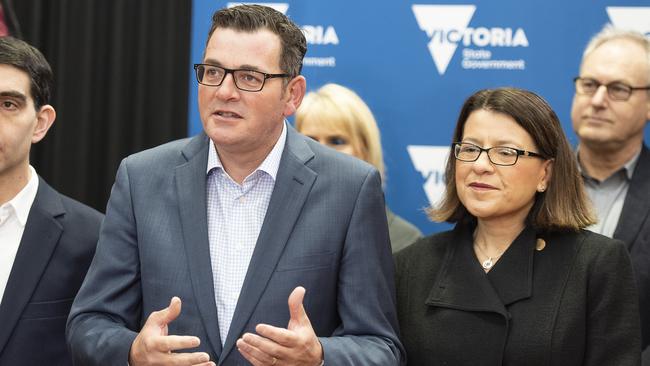Concerns omitted in trans pushback
The professional body defending transgender clinic specialists from criticism has failed to disclose a potential conflict of interest.

The professional body defending transgender clinic specialists from criticism has failed to disclose a potential conflict of interest or acknowledge growing international disquiet about risky medical treatment of trans-identifying children and adolescents.
The Australian Professional Association for Trans Health (AusPATH), with about 250 members, has dismissed concerns expressed two weeks ago by a group of Australian clinicians and researchers about the ethics and evidence for medical treatment that can leave young people suffering side effects including infertility.
On Friday, Health Minister Greg Hunt said he had referred these concerns, reported exclusively by The Weekend Australian to an expert body, The Royal Australasian College of Physicians, for a national inquiry.
In a statement, AusPATH said The Weekend Australian’s coverage of this global issue was “biased, emotive (and) not based on fact (and ignores) available scientific evidence which strongly endorses supporting transgender children through social and medical transition to improve their mental health outcomes”.
AusPATH did not mention rising overseas concern about the safety of giving young people puberty-blocker drugs and irreversible cross-sex hormones. Sources of concern are as varied as the UK Royal College of GPs, The Times, a breakaway US paediatricians’ body, ex-staff from the UK Tavistock gender clinic, free-speech academics and feminists, The Observer, US groups for sceptical parents and young people who regret going trans, and the BBC’s Newsnight.
In defence of its clinicians, AusPATH pointed to its endorsement of treatment standards issued last year by the Royal Children’s Hospital in Melbourne. Badged “Australian standards”, this document covers treatment of young people diagnosed with gender dysphoria, or discomfort with their biological sex, and has been hailed as “the world’s most progressive” by Victoria’s Andrews government.
RCH is seen as a pacesetter for the “affirmation model” which reinforces a young person’s gender self-identification and puts them on the path to social transition (change of name, hair and clothes).
Asked whether the RCH approach was sound, the hospital, Victoria’s Health Minister Jenny Mikakos, and AusPATH all cited the RCH “Australian standards”.
In its statement, AusPATH did not reveal that its president, paediatrician Michelle Telfer, is director of the RCH gender service and lead author of the RCH standards, nor that the other three authors were all from RCH. The Australian does not suggest any impropriety. Repeated requests for interviews or comment from Dr Telfer via RCH and AusPATH were refused.
AusPATH said the RCH standards were “a collaboration” of about 50 clinicians and researchers across Australia. Gender service staff from around the country appear in the document’s small-print acknowledgments, where transgender groups are thanked for their “significant contribution”. The RCH standards do not carry the imprimatur of the National Health & Medical Research Council’s endorsement as national standards, a stamp of approval given to “promote health, prevent harm (and) encourage best practice”.
AusPATH highlighted the fact that the RCH standards document was praised in an editorial by The Lancet journal for offering “a framework for provision of respectful, gender-affirming care” and “suggesting that social transition … should be led by the child”.
AusPath failed to cite a multi-author letter in The Lancet last December which said the editorial and the RCH standards used “imprecise language and overplayed empirical evidence”.
“(The RCH document) does not consider longer-term effects, including the difficult issue of detransition (by regretful former trans people),” says the letter by lead author, Plymouth University’s professor of primary care research Richard Byng.
“Patients need high-quality research into the benefits and harms of all psychological, medical, and surgical treatments, as well as so-called wait-and-see strategies.”



To join the conversation, please log in. Don't have an account? Register
Join the conversation, you are commenting as Logout